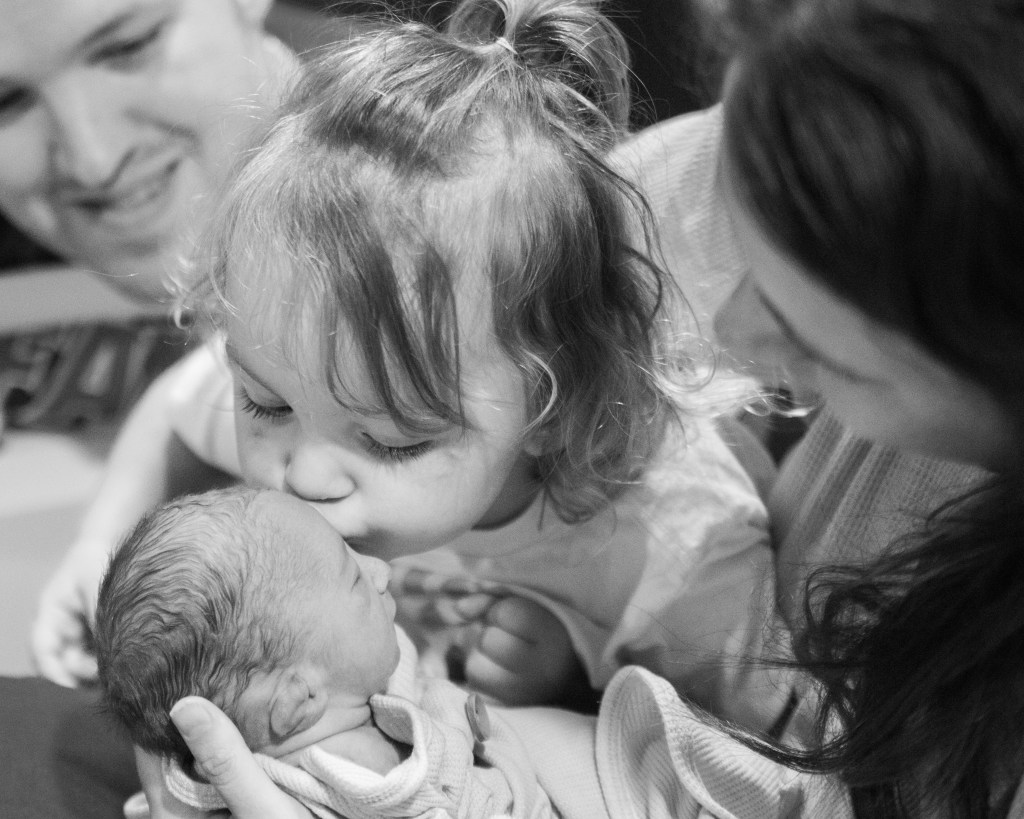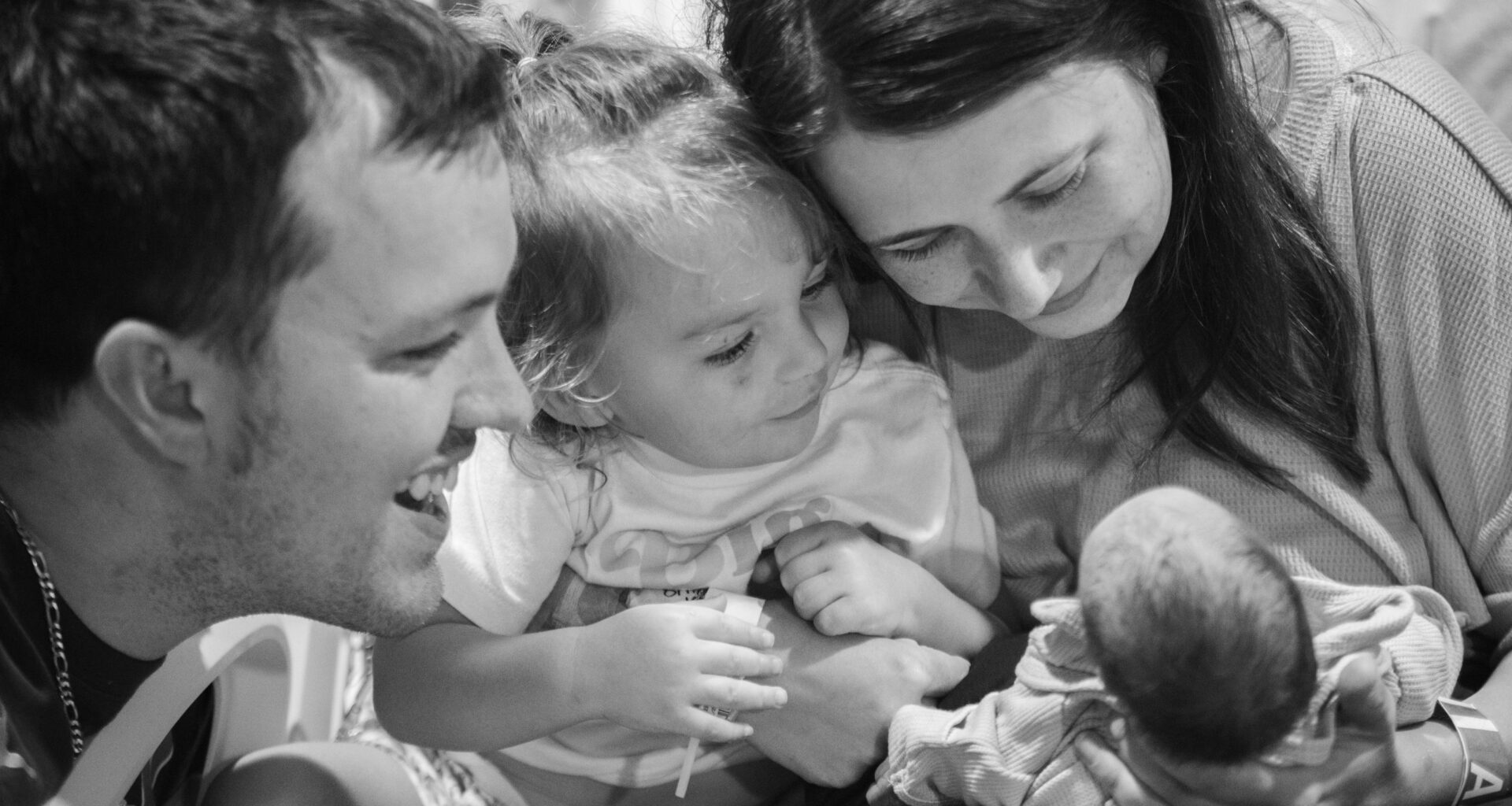Kohen Jay Hewitt’s life was only three hours long, but it was filled with love.
His adoring parents, Laci and Kyle, sang “Happy Birthday” to him. His big sister, 2-year-old Kollins, held him. He had a mother-son dance with Laci.
Then, as expected and planned for, he died a peaceful death.
The Hewitts’ story is heartbreaking, but it is not uncommon. Kohen died of a congenital abnormality, or birth defect. In Tarrant County, more than 1 in 5 infant deaths are caused by birth defects, and more infants in the U.S. die from birth defects than from any other cause.
In the face of a high infant mortality rate, Tarrant County doctors, government officials and community leaders are working to prevent as many deaths as possible. But most birth defects are not preventable, and families facing them need a unique kind of care.
One Tarrant County doctor has made caring for families like the Hewitts her focus, and parents travel from around the state to get the care she provides. The families grapple with a unique kind of grief as they prepare to welcome a child who will not survive.
Difficult choices
Twenty-one weeks into Laci’s pregnancy, what began as a routine prenatal appointment became more urgent when it appeared from the ultrasound that her water had broken. The Hewitts were sent to the emergency room in an overwhelming turn of events.
“You’re just in survival mode when you get information that you’re not expecting,” Laci said.
Medical professionals discovered that Laci’s water had not broken. She never had amniotic fluid, the crucial mix of nutrients and other components that surrounds a baby in the womb, to begin with.
Upon hearing that Laci’s water had not broken, the Hewitts felt encouraged — this sounded like good news — but the doctor informed them that this was still a bad sign.
A few days later, the family was told their son had bilateral renal agenesis, a condition of an unknown cause that results in a baby’s kidneys not developing.
During the second half of pregnancy, a baby’s kidneys produce most of the amniotic fluid in the womb, and their lungs cannot fully develop without it. Most babies with this condition, if they survive until birth, do not live more than a few hours afterward.
“You’re looking for any sign of hope, and there was none,” Kyle said.
The Hewitts were referred to Dr. Terri Weinman, a specialist in perinatal palliative care.
Palliative care aims to make a patient as comfortable as possible, and although it sometimes accompanies treatment to fight disease, it is not itself curative. The perinatal branch of palliative care focuses on the period of time from about halfway through pregnancy to one month of age.
Weinman and a nurse practitioner with the same specialization helped the Hewitts come up with goals for their son’s life. They walked Laci and Kyle through difficult decisions, from the plan for Kohen’s birth to arrangements for his funeral.
“These conversations are lengthy and in-depth and emotional,” Weinman said. “We have endless boxes of Kleenex, and sometimes we meet three, four, five times before the baby is born just to make sure we have everything just exactly the way the parents want it. But it’s important.”
The choices the Hewitts had to make included weighing possible medical interventions for their son. Laci and Kyle were told that steps could be taken to prolong Kohen’s life by a month at most, but that would mean multiple surgeries and tubes put into his body.
Following one appointment, the Hewitts sobbed as they headed home.
“Laci,” Kyle said, “I don’t want our son to be in pain. I don’t want him to suffer.”
The Hewitts decided to focus instead on enjoying the time they would have with Kohen and making his life as pain-free as possible.
‘3 pounds of perfectness’
The Hewitts were surprised when Laci went into sporadic labor at 32 weeks. Kohen was born by cesarean section on Aug. 11, 2024.
“He was 3 pounds of perfectness, and he had red hair,” Laci said.
 One way the Hewitts keep Kohen’s memory alive is through photos of him, which they have displayed throughout their Glen Rose home. Kollins also has a playhouse in the family’s backyard called “the blue jay nest.” (Courtesy photo | Tara Peckham, Peckham Family Photography)
One way the Hewitts keep Kohen’s memory alive is through photos of him, which they have displayed throughout their Glen Rose home. Kollins also has a playhouse in the family’s backyard called “the blue jay nest.” (Courtesy photo | Tara Peckham, Peckham Family Photography)
The Hewitts had been afraid that Kohen would not survive birth, or that his lungs would be too weak to cry. But while talking to Laci in the C-section room, Kyle heard a baby’s cry.
“Whose baby is that?” he asked. Then, it hit him. “Oh, we’re the only ones in here. That’s him!”
Laci and Kyle introduced Kohen to their families and sang him songs. Kollins met her little brother, her “Bubbas.”
 Two-year-old Kollins hugs and kisses baby brother Kohen, whom she calls “Bubbas.” The Hewitts pray together each night before eating dinner, and Laci said they always end their prayer with the phrase, “and give Bubbas a big hug.” (Courtesy photo | Tara Peckham, Peckham Family Photography)
Two-year-old Kollins hugs and kisses baby brother Kohen, whom she calls “Bubbas.” The Hewitts pray together each night before eating dinner, and Laci said they always end their prayer with the phrase, “and give Bubbas a big hug.” (Courtesy photo | Tara Peckham, Peckham Family Photography)
The Hewitts met every goal they had for Kohen’s life.
“We were blessed,” Kyle said. “I know it’s crazy to say that, but we were because so many families, maybe they lose the baby throughout the pregnancy, maybe he’s stillborn, and he was beautiful.”
During Laci’s pregnancy, the Hewitts were connected with Abel Speaks, a nonprofit Christian ministry that supports families whose babies are facing life-limiting diagnoses. Through Abel Speaks, the Hewitts received keepsakes to remember their son by, including a Bible and impressions of his feet and hand.
The nonprofit also sent a photographer who took professional photographs of Kohen and the family. Laci’s sister helped assemble the pictures into a book.
“Those photos are priceless,” Kyle said. “If you asked me, ‘Kyle, your house is on fire, you get a chance to grab one thing,’ I’m like, ‘I’m grabbing that book of my son’s pictures.’”
 Kollins, now 3, kisses newborn Kohen. Weinman encourages her patients to record their child’s heartbeat, and the Hewitts placed a recording of Kohen’s inside a stuffed green dinosaur that plays the sound when squeezed. (Courtesy photo | Tara Peckham, Peckham Family Photography)
Kollins, now 3, kisses newborn Kohen. Weinman encourages her patients to record their child’s heartbeat, and the Hewitts placed a recording of Kohen’s inside a stuffed green dinosaur that plays the sound when squeezed. (Courtesy photo | Tara Peckham, Peckham Family Photography)
After Kohen’s death, the Hewitts had more time to say goodbye because they had access to a cooling cot, a device that preserves an infant’s body after they die so their family can have more time with them.
Kohen’s early arrival meant Weinman was out of the country when he was born, but she soon returned and visited the family in the hospital where she was able to hold Kohen.
“What I really loved about Dr. Weinman, too, is that she asked to hold him,” Laci said. “It meant a lot to this mom that she valued the life that I carried.”
Growing awareness
The Hewitts live in Glen Rose, a Somervell County town an hour from Fort Worth, and they are not alone in going the distance to see Weinman and other specialists in the area.
“They weren’t from this county, but they came to this county to deliver here on purpose because they wanted the expertise that we have to help them through their child’s death, and that happens a lot,” Weinman said.
Some of Weinman’s patients travel from around Texas and Oklahoma seeking a higher level of care than hospitals in smaller towns can provide, but others travel from major cities like Austin. Some even pass through Dallas on their way from East Texas cities like Tyler.
Weinman does not know exactly how many medical providers in Texas focus specifically on the perinatal branch of palliative care, but she said there are not many. Still, awareness is growing, both within the medical community and outside of it.
The American Board of Pediatrics did not offer a certification in palliative medicine until 2008, and when Weinman earned hers in 2010, she was one of only 18 doctors nationwide to hold board certifications in both neonatal-perinatal medicine and pediatric palliative medicine. Two fellowship programs now exist in the U.S. to educate doctors about perinatal palliative care specifically, she said.
The specialty has garnered attention from the Texas Legislature.
The Perinatal Palliative Care Act passed during spring 2025 and will require that doctors inform patients whose babies have life-threatening diagnoses that this kind of care is available to them. It takes effect Sept. 1, 2025.
Under the law, the Texas Health and Human Services Commission will create informational materials and a list of perinatal palliative care providers, and doctors must distribute these materials to patients at the time of diagnosis.
Kelly Hancock, a North Richland Hills Republican, carried the bill in the Senate. The law says that more babies with life-threatening diagnoses will be born than would have been before the state’s abortion ban.
Moving forward
Through Abel Speaks, the Hewitts were connected with a mentor couple who had also experienced the death of an infant son. They now want to offer the same support to others.
“We have felt so much love and joy even in the midst of sorrow, and that’s not everyone’s story,” Laci said.
Parents tell Weinman they want to support others going through the same thing, and she introduces families with their permission. She also stays in touch with some of the families she treats and offers support herself.
“I always try to go to the funerals, if I can,” Weinman said. “Just let them know that somebody really cares. It just matters.”
Weinman’s job takes a toll, and she admits that she is not great at coping with it, but she said she takes better care of herself than she used to.
When she first began to focus on this work, she went three years without a vacation day before taking a few days off at the insistence of a colleague. After she returned, she realized her earlier pace was not sustainable.
“If you don’t fill your own cup, how can you help anybody else?” Weinman said.
Now, she uses her vacation time. She also leans on her husband, friends, co-workers and her Christian faith. Knowing that her work makes a difference for families like the Hewitts helps, too.
“Even though they lost their son, they lost their son in a way that felt right to them, and that brings me peace knowing that even though I couldn’t take away their problem, I could at least walk with them through it,” she said.
McKinnon Rice is a reporting fellow for the Fort Worth Report. Contact her at mckinnon.rice@fortworthreport.org.
At the Fort Worth Report, news decisions are made independently of our board members and financial supporters. Read more about our editorial independence policy here.
Related
Fort Worth Report is certified by the Journalism Trust Initiative for adhering to standards for ethical journalism.
Republish This Story
Republishing is free for noncommercial entities. Commercial entities are prohibited without a licensing agreement. Contact us for details.
